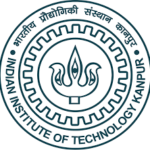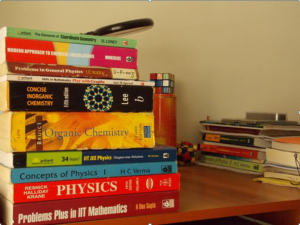
What is Joint Entrance Examination ?
Joint Entrance Examination (JEE) is an engineering entrance examination conducted for admission to various engineering colleges in India and regarded internationally as one of the most challenging undergraduate admission tests[1]. It is constituted by two different examinations – JEE Main and the JEE Advanced.
The Joint Seat Allocation Authority (JoSAA) conducts the joint admission process for a total of 23 Indian Institute of Technology campuses, 32 National Institute of Technology campuses, 18 Indian Institute of Information Technology campuses, Indian School of Mines and 19 other Government Funded Technical Institutes (GFTIs) based on the rank obtained by a student in JEE Mains and JEE Advanced.
There are some institutes like Indian Institutes of Science Education and Research (IISERs), Rajiv Gandhi Institute of Petroleum Technology (RGIPT), and Indian Institute of Science (IISc) use the score obtained in JEE Advanced as the basis for admission. These institutes do not participate in the post examination counselling session. Any student who takes admission to IITs cannot appear for the JEE-Advanced exam in the next year, but the same is not the case with IISc, IISER, RGIPT and other institutes as these institutes only use JEE Advanced score for admission.
Number of applicants by year
The number of applicants taking the JEE Main has varied over the years. In 2016, fewer aspirants registered as compared to the previous three years as shown in the table below.1.3 million candidates appeared for JEE Main in 2014.
| Year | No. of Students |
|---|---|
| 2020 | 921,261 |
| 2019 | 929,198 |
| 2018 | 1,043,739 |
| 2017 | 1,186,454 |
| 2016 | 1,194,938 |
| 2015 | 1,304,495 |
| 2014 | 1,356,805 |
| 2013 | 1,282,000 |
| 2012 | 479,651 |
JEE Advanced
The top students who take the JEE-Main qualify for the JEE-Advanced examination. In 2018, 224,000 students were allowed to take the JEE-Advanced, a number that had gone up from 220,000 in 2017 and 200,000 in 2016.
Tips to crack JEE Examination
Plan your study
Being methodical and disciplined is very important to crack JEE Advanced Examination. Establish definite goals to be achieved in a day, in a week, and in a month and stick to it. Analyze whether you achieved the goal or not before you go to bed. Make a time table and layout clearly what you need to achieve each day.
Try to include following goals to your daily list:
- Clearly layout topics for study on daily basis and prepare notes for the same
- Solve numerical related to the topic
- Solve atleast one sample paper, practice paper or previous years’ paper
In JEE Main or JEE Advanced rote learning will not fetch you good scores. Focus more on understanding the topics rather than rotting. Solve as many tough numerical as you can related to the topic. CBSE students should emphasize on High Order Thinking Skills (HOTS) these days.
In JEE Advanced mostly questions are asked based on application of concepts and fundamental you have learnt. So, try to practice those questions which include real life problems. Practicing previous years’ questions will give you a good idea of what type of questions may be asked in the examination
Practice Last 10 Years’ Question Papers
Previous Years’ question papers help in knowing the difficulty level and type of questions asked in the IIT JEE Advanced Examination. Practicing these papers within time limit give you an idea of how to attempt actual paper. It also help in managing time. Practicing previous years’ question paper also help you to know where you are making mistakes. Practicing these papers will fuel your confidence for the actual examination.
Practice Sample Papers/Practice Papers
When you are finished with IIT JEE Advanced last 10 years’ question papers then start practicing as many sample papers and practice papers as you can. Practicing sample papers will bring you new type of questions and get you acquainted with new pattern of examination.
From basics to classics
As your JEE Main Examination is over and you are done with fundamentals, now it is high time to take challenges. Study difficult topics when you are at your brightest and most alert and solve difficult problem when you are well-versed with the concept. Now, it’s time to move from your comfort level and put extra effort so, that you do not loose chance to be in IIT this year.
Find suitable peer study groups
Try to build suitable peer group for JEE Advanced preparation. Peer study groups provide constructive competition and keep you motivated. They have common goals and rather than being competitive just to prove a point, students end up helping each other hone their strengths and eliminate their weaknesses to reach a common goal.
Most Important Books for JEE Main and JEE Advanced
 One of the most significant requirements for effective JEE preparation is finding the best textbooks and notes, right? With the extensive JEE syllabus and the limited time available for preparation, choosing the right books for the right subjects becomes crucial. Add to that the vast sources of information available over the internet, it comes extremely confusing to figure out what all and how many books to study from.
One of the most significant requirements for effective JEE preparation is finding the best textbooks and notes, right? With the extensive JEE syllabus and the limited time available for preparation, choosing the right books for the right subjects becomes crucial. Add to that the vast sources of information available over the internet, it comes extremely confusing to figure out what all and how many books to study from.
Some of our experienced faculty at iitianacademy, who are also IIT alumni, have listed here the most important reference books for JEE, which are essential for an effective JEE preparation.
| MATHS | PHYSICS | CHEMISTRY | ||
| Physical Chemistry | Organic Chemistry | Inorganic Chemistry | ||
| Objective Mathematics (RD Sharma) | Concept of Mathematics (Part 1 and 2) (HC Verma) | Physical Chemistry for Competitions (OP Tandon) | Organic Chemistry for Competitions (OP Tandon) | A Textbook of Inorganic Chemistry (RK Gupta) |
| IIT Mathematics (For Algebra) (ML Khanna) | Problems in General Physics (IE Irodov) | Modern Approach to Chemical Calculations (RC Mukherjee) | Organic Chemistry (Morrison and Boyd) | Concise Inorganic Chemistry (JD Lee) |
| Higher Algebras (Hall and Night) | Fundamental Physics (Halliday, Resnick and Walker) | Physical Chemistry – P. Bahadur | Organic Chemistry – Himanshu Pandey (GRB Publication) | |
| Plane Trigonometry (SL Loney) | Aptitude Test Problems in Physics (SS Krotov) | Physical Chemistry – K.S. Verma (Cengage Publication) | Organic Chemistry – M. S. Chauhan (Balaji Publication) | |
| New Pattern Physics (DC Pandey) Arihant Publications | ||||